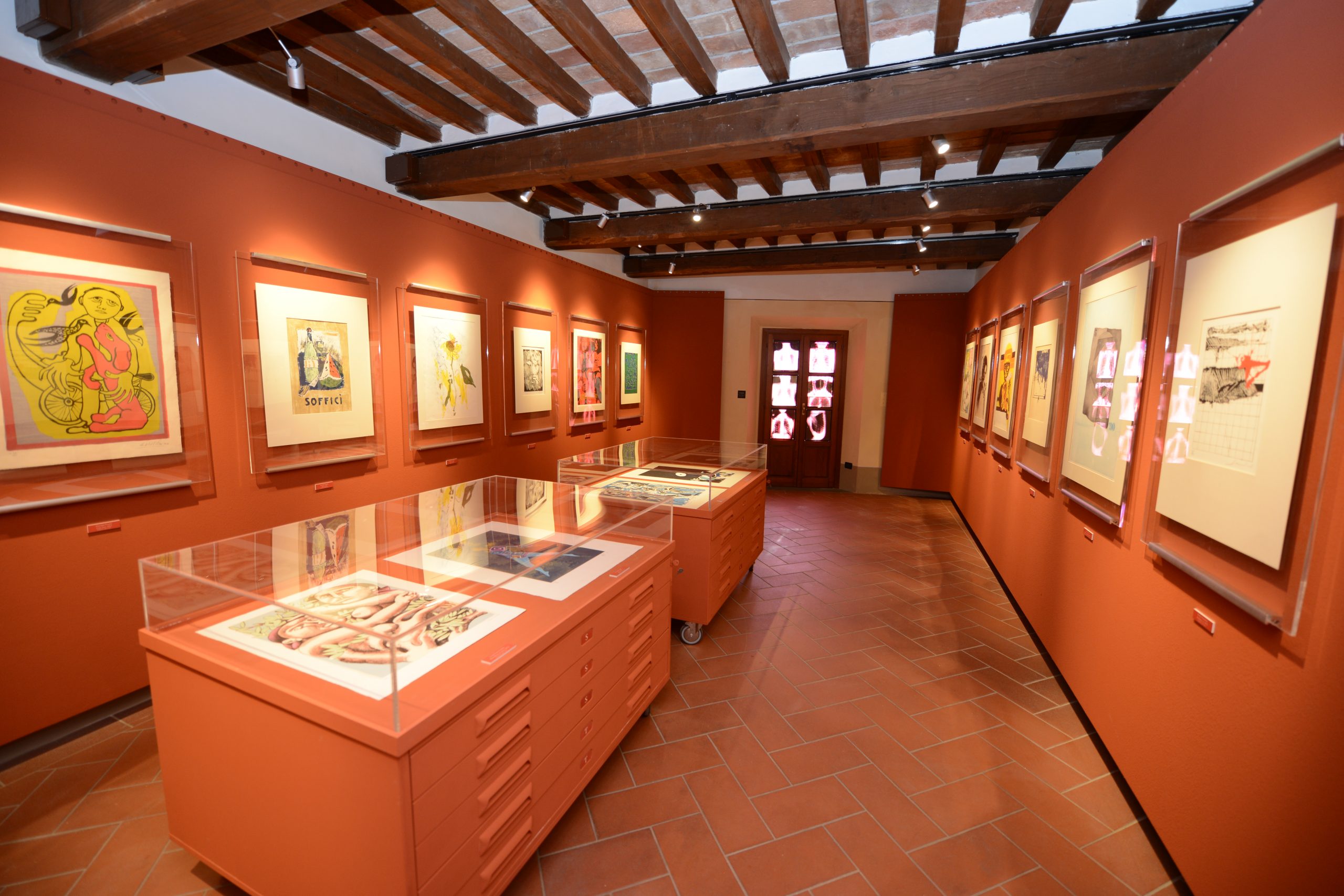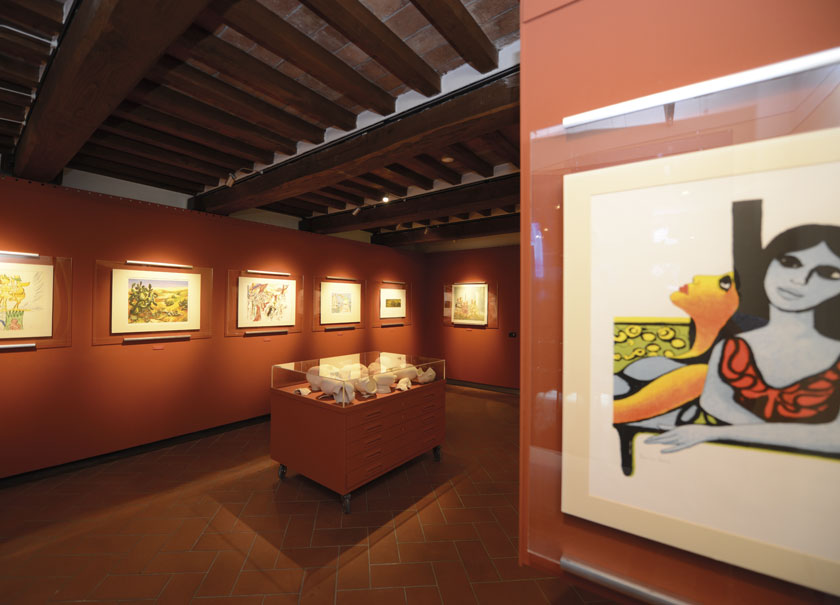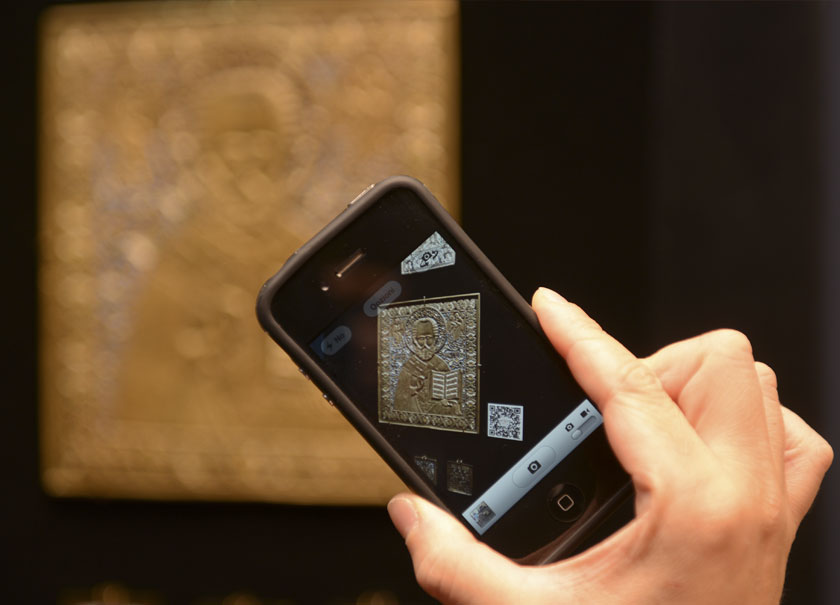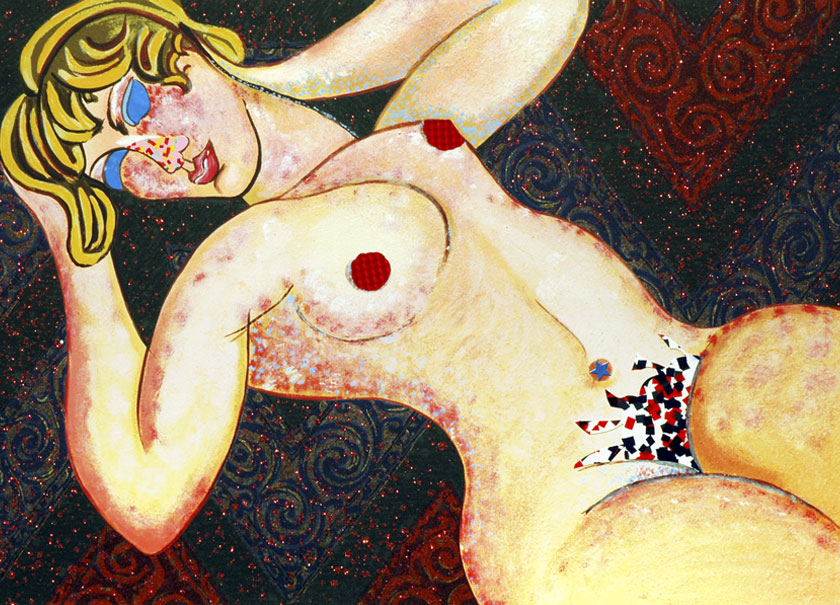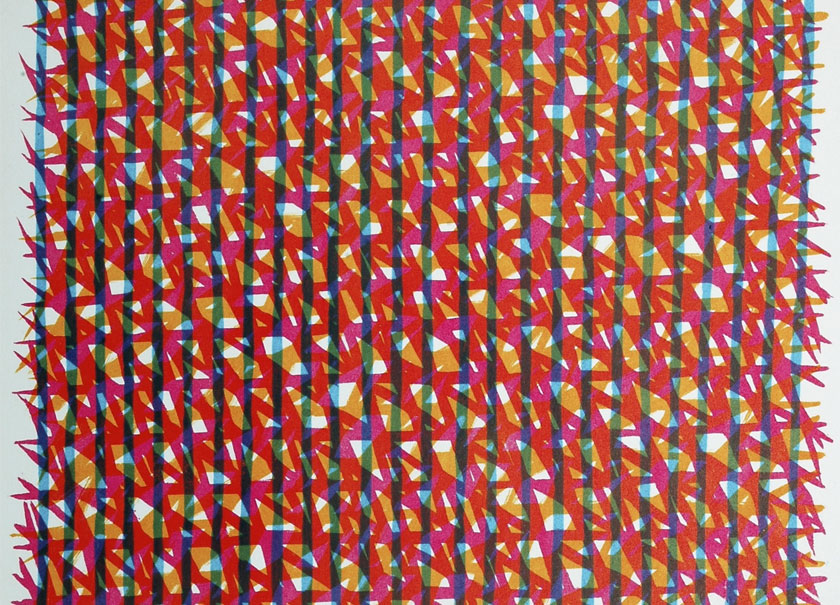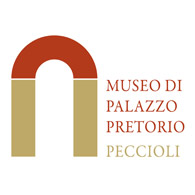
The Palace
Built in the Middle Ages, Palazzo Pretorio was the residence of the consuls of the Pisan municipality and of the Podestà authorities of the government of Florence. Overlooking Piazza del Popolo, the palace displays the coats of arms of the Podestà families who have succeeded in the government of the town on its façade and on its interior walls.
Today the building houses the Museum of Palazzo Pretorio and the local Tourist Information Office.
The Museum
Since the 1990s, Peccioli has believed in the possibility of a relation between the medieval layout of the territory and contemporary art, introducing site-specific art interventions into its urban fabric, such as the installations “Font” and “Chit-chatting” by Vittorio Corsini, “Descending column” by Hidetoshi Nagasawa, “Acropolis” by Vittorio Messina and “Guests” by Fortuyn/O’Brien, to mention just a few.
Contemporary art has merged with the urban space for over twenty years, narrating the place and its inhabitants, establishing a relation between the present, the past and ancient iconographic languages, which was renewed with the New Opening of the Museum of Palazzo Pretorio.
The ancient palace hosts the Museum of Russian Icons “F. Bigazzi”. Inaugurated in 2000, it has become a place of conservation and exhibition of two collections of icons over the years, for a total of about 200 works on display: the Bigazzi collection and the Belvedere collection, which are periodically expanded through targeted and careful purchases of selected works.
The Museum is enhanced by the Collection of Engravings and Lithographs – Vito Merlini Donation, a collection of works ranging from informal to figurative style, up to Metaphysics; 279 sheets including engravings, lithographs, woodcuts and serigraphs collected by Vito Merlini, a general practitioner in Peccioli, who donated them to the Municipality in 2006.
This ancient palace was built in medieval times and remodeled between the 18th and 19th centuries; over the centuries, it was a symbol of the centrality of political power; lately, it was turned into the hub of exhibition and museum activities in Peccioli, a place where to compare and relate to contemporary art, an art of apparently distant places.
The “F. Bigazzi” Collection and the Belvedere Collection
The Bigazzi Collection, which enabled the opening of the Museum of Russian Icons in 2000, is made of predominantly Russian icons dating back to the 18th century, up to the early 20th century; they are typical of a domestic veneration and painted both in tempera, according to the traditional technique, and in oil, according to an “academic” methodology. The Belvedere Collection, unique in its kind, consists of wooden icons with a singular and unusual peculiarity: dating back to the 18th century to the 20th century and coming from all over the Orthodox world (Russia, Armenia, the Balkans, Constantinople, Estonia, Jerusalem, Greece, the Ionian Islands, Latvia, Mount Athos, Romania, Transylvania and Ukraine) they are all dated or signed or they have a dedication. An entire section of the exhibition, a unique case in Italy, is also designated for bronze crosses, icons and polyptychs, mostly typical of the production of the Old Believers; among them, a very rare example of a baptismal cross dating back to the 15th century stands out.
In December 2020, on the occasion of the 20th anniversary of the museum foundation, a new section dedicated to Russian art expanded the collections of icons: 52 works of a Donation by Giuseppe and Paola Berger including crosses, icons and polyptychs (51 in bronze and 1 in bone), representative of much of the production of the Old Believers.
Collection of Engravings and Lithographs – Vito Merlini Donation
The Collection of Engravings and Lithographs – Vito Merlini Donation originated in 2006 thanks to an act of philanthropy by Vito Merlini and to the will of the Municipal Administration and of the Belvedere company. They believe that the poetics of the Work of Art lies precisely in the etymological meaning of the word root “graphy”, understood as “sign, drawing, engraving”. The work of art materializes through the immediacy of the graphic act, which does not allow any hesitation or repentance and which will always maintain a character of simplicity and freshness.
The collection consists of 279 sheets including engravings, lithographs, woodcuts and serigraphs: a collection of works that disclose and summarize an Italian artistic overview of the 20th century in a comprehensive way.
Part of the works of the donation were made by pure engravers like Viviani, Piacesi, Bartolini, Zancanaro, Gulino, Mongatti, Greco, Morena, Parigi, etc.; other works were realized by painters and sculptors, who made use of engraving and lithographic techniques with extraordinary results: Baj, Breddo, Carrà, Guerricchio, Guttuso, Possenti, Morlotti, Maffi, Manzù etc.; the collection is enriched by other prominent names: Carla Accardi, Annigoni, Cantatore, Dorazio, Fattori, Goya, Marino Marini, Mirò, De Chirico, Dalì, Saetti, Sassu, Scialoja, Soffici, Vangi, Vittorini.
Vito Merlini, a former practitioner in Peccioli, was a person with a multifaceted personality who pervaded many aspects of the life of the community: he performed as an actor and he has been the president of the Philharmonic Society, of the Cycling Union and of the Football Society in Peccioli.
The Museum of Palazzo Pretorio is part of a museum network in Peccioli, together with the Archaeological Museum and the Museum of Sacred Art.
Opening hours
Tuesdays: 9.00 – 13.00
Wednesdays: 15.00 – 19.00
Saturdays, Sundays and holidays: 10.00 – 13.00, 14.00 – 19.00
Closed on New Year’s Day, May 1st, August 15th, Christmas Day and in the afternoons on New Year’s Eve and Christmas Eve.
Tickets
Free entry
For schools students and for groups of visitors it is possible to book private guided tours independently from the opening hours. They are requested to contact the administrative office of the Foundation Peccioliper (fax +39 0587 670831).
Contacts
Museum of Palazzo Pretorio
Piazza del Popolo, 5
56037 Peccioli (PI)
Tel. 0587 672158
Tel. 0587 672877
info@fondarte.peccioli.net
